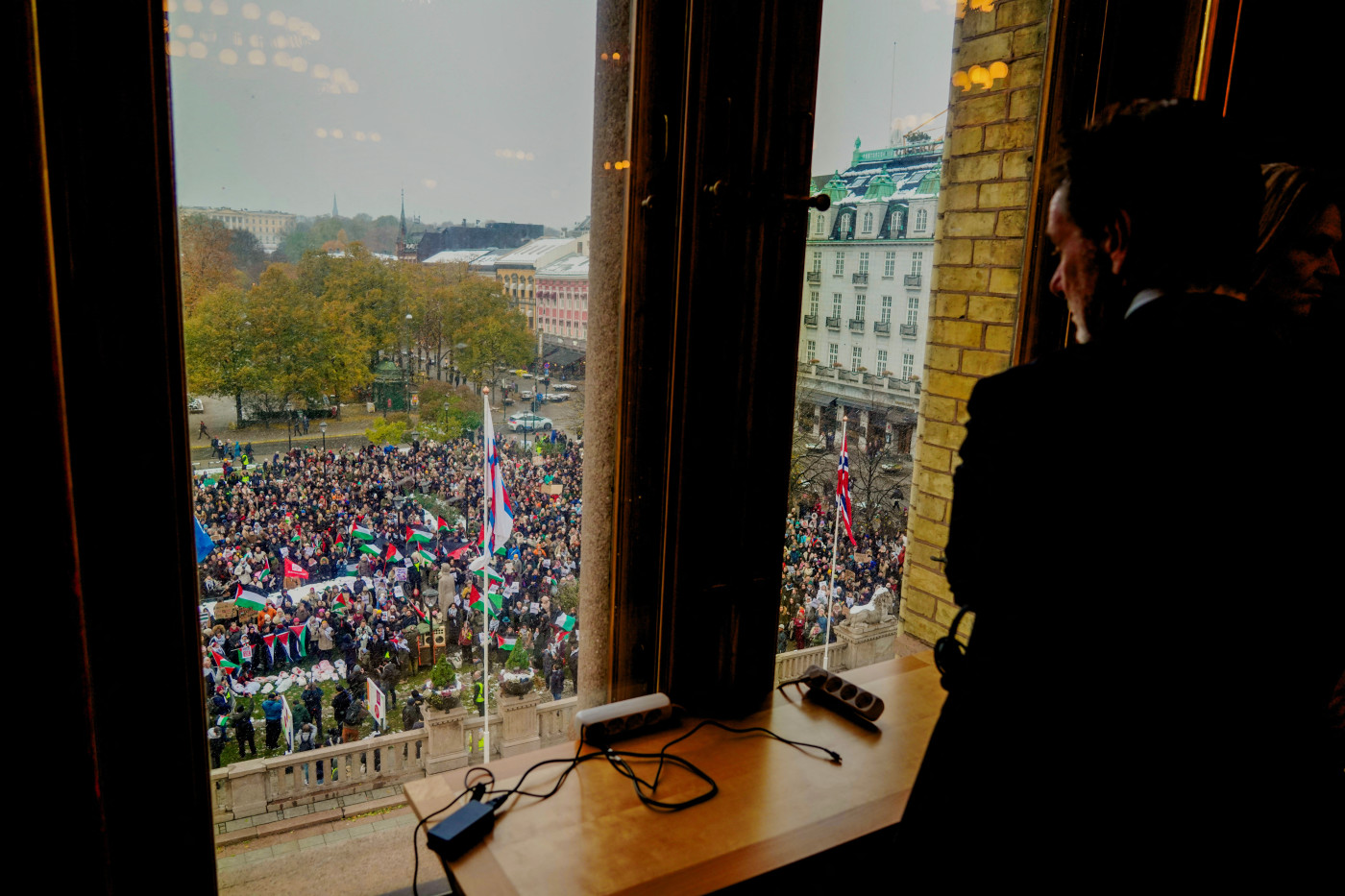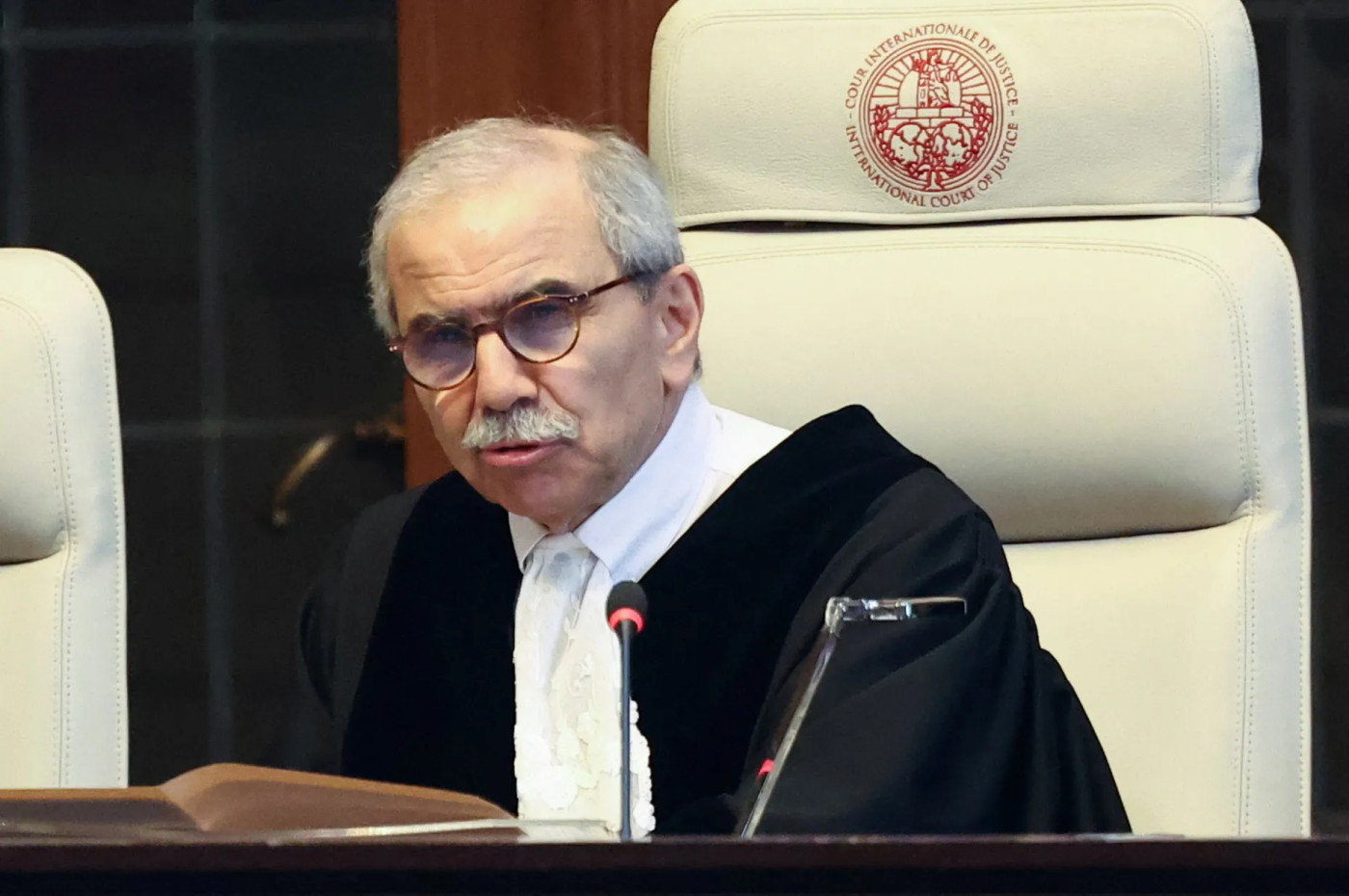Israel's State-Owned Defense Giant Brings High-Tech War Plans to Washington
As the war between Israel and the Palestinian Hamas movement continues to play out in the Gaza Strip, Israel Aerospace Industries (IAI) is a driving force behind the weapons systems being put to the test in one of the longest and widest-ranging conflicts the nation has ever fought.
Now, with Israel's largest state-run defense company having inaugurated a new visitors center in Washington, D.C., on Wednesday, IAI President and CEO Boaz Levy has outlined how the company is looking to share an ambitious new approach to the conflict with counterparts in the U.S. capital.
"If we are looking toward to the future, we see that the name of the game today is a lot of coalitions, a lot of capabilities that can be integrated and can be interoperated together," Levy told Newsweek. "It's about time to bring our technology here to Washington."
Such capabilities, he argued, have become further necessary at a time when worsening regional tensions have sparked the prospect of conflict spreading beyond its already multi-front nature. Israel has faced attacks not only from Gaza but also from Lebanon, Iraq, Syria, Yemen and Iran, all of which systems that IAI helped to develop, such as the Iron Dome and Arrow, have intercepted over the past seven-and-a-half months of the war.
In the face of such threats, Levy noted that "it is a challenging conflict indeed," as "we have several borders, and each border is different from the other one in terms of capabilities."
Yet, he argued that the task requires one answer, "a solution that will cover 360 degrees, all aspects, all altitudes, ground, naval and air and including space."
That solution lies in a "system of systems" developed by the Israel Defense Forces (IDF) with IAI's support, marking what Levy called "a major change" in how the nations fights its wars.
"Until recently, we used to work in one system that had been tailored for specific a special mission, but the world is this changing and there is no clear cut between military activities, rescue forces, even civilian aircraft," Levy said. "We are fighting in cities, we are not fighting in a faraway border, that's why everything is mixing up, and we need to find a right way to deviate between the problems you have and to find the right solutions."
The multilayered "system of systems" approach is based on mass data collection, enhanced by satellites, sensors and AI-based tools that analyze the battlefield and can inform soldiers on the ground in real time. In addition to live troops, autonomous missiles are another platform introduced during the war in Gaza, Levy noted.
The approach is part of Israel's long-standing push to develop cutting-edge warfighting technologies and state-of-the-art weapons, which have been developed by IAI and other leading Israeli defense firms such as Elbit Systems and Rafael Advanced Defense Systems.
While Levy touted the performance of both IDF personnel and IAI platforms throughout the conflict thus far, he acknowledged that unknown variables were inevitable in any war, particularly one that began with an unprecedented surprise attack.
"The only certainty that you can have on the battlefield is the uncertainty," Levy said. "And you can build as much capabilities as you want and work against the simulation as much as you want, but at the end of the day there are surprises and changes, and you need to adapt your system to be able to deal with it."
"So, your system should be agile enough in order to receive these adaptations and to change the capabilities on day-to-day basis," he added. "And that's actually what we're doing."
A potentially more problematic variable has emerged, however, in the form of frictions between U.S. and Israeli leadership. President Joe Biden and his administration have accused Israeli Prime Minister Benjamin Netanyahu and his government of not doing enough to prevent civilian casualties in Gaza, and of failing to allow for the sufficient flow of humanitarian aid into the war-torn Palestinian territory.
Tensions mounted last month when Biden announced the suspension of a shipment of U.S.-made bombs to Israel and threatened to halt further offensive military aid if Netanyahu went through a planned full-scale offensive in the southern Gaza city of Rafah. The IDF had commenced operations in Rafah despite U.S. protests but did so on a more limited scale that has far avoided further punitive measures from Washington.
As of last week, reports indicate the White House has since prepared a new $1 billion arms package for Israel.
Levy, for his part, expressed confidence that political and defense ties between the two allies would not only power through the current troubles but grow more resilient.
"It is true that sometimes the U.S. can think different than our leaders or the other way, but this strong relationship that we've built along the years enables us to overcome it and take the right decisions," Levy said. "So as a major company in Israel, and as a company which works here in the States for so many years, I see no change and I see even an increase of our mutual capabilities."
Disclaimer: The copyright of this article belongs to the original author. Reposting this article is solely for the purpose of information dissemination and does not constitute any investment advice. If there is any infringement, please contact us immediately. We will make corrections or deletions as necessary. Thank you.



